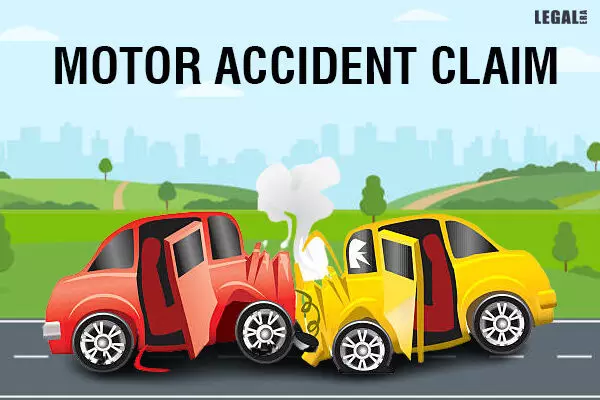- Home
- News
- Articles+
- Aerospace
- Artificial Intelligence
- Agriculture
- Alternate Dispute Resolution
- Arbitration & Mediation
- Banking and Finance
- Bankruptcy
- Book Review
- Bribery & Corruption
- Commercial Litigation
- Competition Law
- Conference Reports
- Consumer Products
- Contract
- Corporate Governance
- Corporate Law
- Covid-19
- Cryptocurrency
- Cybersecurity
- Data Protection
- Defence
- Digital Economy
- E-commerce
- Employment Law
- Energy and Natural Resources
- Entertainment and Sports Law
- Environmental Law
- Environmental, Social, and Governance
- Foreign Direct Investment
- Food and Beverage
- Gaming
- Health Care
- IBC Diaries
- In Focus
- Inclusion & Diversity
- Insurance Law
- Intellectual Property
- International Law
- IP & Tech Era
- Know the Law
- Labour Laws
- Law & Policy and Regulation
- Litigation
- Litigation Funding
- Manufacturing
- Mergers & Acquisitions
- NFTs
- Privacy
- Private Equity
- Project Finance
- Real Estate
- Risk and Compliance
- Student Corner
- Take On Board
- Tax
- Technology Media and Telecom
- Tributes
- Viewpoint
- Zoom In
- Law Firms
- In-House
- Rankings
- E-Magazine
- Legal Era TV
- Events
- Middle East
- Africa
- News
- Articles
- Aerospace
- Artificial Intelligence
- Agriculture
- Alternate Dispute Resolution
- Arbitration & Mediation
- Banking and Finance
- Bankruptcy
- Book Review
- Bribery & Corruption
- Commercial Litigation
- Competition Law
- Conference Reports
- Consumer Products
- Contract
- Corporate Governance
- Corporate Law
- Covid-19
- Cryptocurrency
- Cybersecurity
- Data Protection
- Defence
- Digital Economy
- E-commerce
- Employment Law
- Energy and Natural Resources
- Entertainment and Sports Law
- Environmental Law
- Environmental, Social, and Governance
- Foreign Direct Investment
- Food and Beverage
- Gaming
- Health Care
- IBC Diaries
- In Focus
- Inclusion & Diversity
- Insurance Law
- Intellectual Property
- International Law
- IP & Tech Era
- Know the Law
- Labour Laws
- Law & Policy and Regulation
- Litigation
- Litigation Funding
- Manufacturing
- Mergers & Acquisitions
- NFTs
- Privacy
- Private Equity
- Project Finance
- Real Estate
- Risk and Compliance
- Student Corner
- Take On Board
- Tax
- Technology Media and Telecom
- Tributes
- Viewpoint
- Zoom In
- Law Firms
- In-House
- Rankings
- E-Magazine
- Legal Era TV
- Events
- Middle East
- Africa
Supreme Court: Motor Accident Claims Not Bound by Location of Incident for Filing with MACT

Supreme Court: Motor Accident Claims Not Bound by Location of Incident for Filing with MACT
The Supreme Court has stated that claimants are not obligated to file a compensation application under Section 166 of the Motor Vehicles Act before the Motor Accident Claims Tribunal (MACT) having jurisdiction over the accident's location.
Justice Dipankar Datta, in his ruling on a transfer petition, highlighted that claimants have the option to approach the MACT within the geographical boundaries of their residence, business operations, or where the defendant resides.
The owner of the vehicle involved in the incident presented a ground in this transfer petition, asserting that since the accident occurred in Siliguri, within the district of Darjeeling, West Bengal, it would be more appropriate for the Motor Accident Claims Tribunal in Darjeeling to adjudicate on the claim petition.
“The claimants having chosen the option to approach the MACT, Farrukhabad at Fatehgarh, U.P., a forum that law permits them to choose, no grievance can be raised by the petitioner. The contention is misconceived and, hence, stands overruled,” the Apex Court said.
The petitioner argued that language might pose a barrier since all his witnesses are from Siliguri. Dismissing this argument, the judge noted that India's diversity encompasses a multitude of languages, with at least 22 recognized as official. While acknowledging Hindi as the national language, the judge emphasized that it is reasonable to expect witnesses presented by the petitioner before the MACT in Fatehgarh, U.P. to express themselves in Hindi. Accepting the petitioner's stance would disadvantage the claimants who might face difficulty communicating their version in Bengali.



